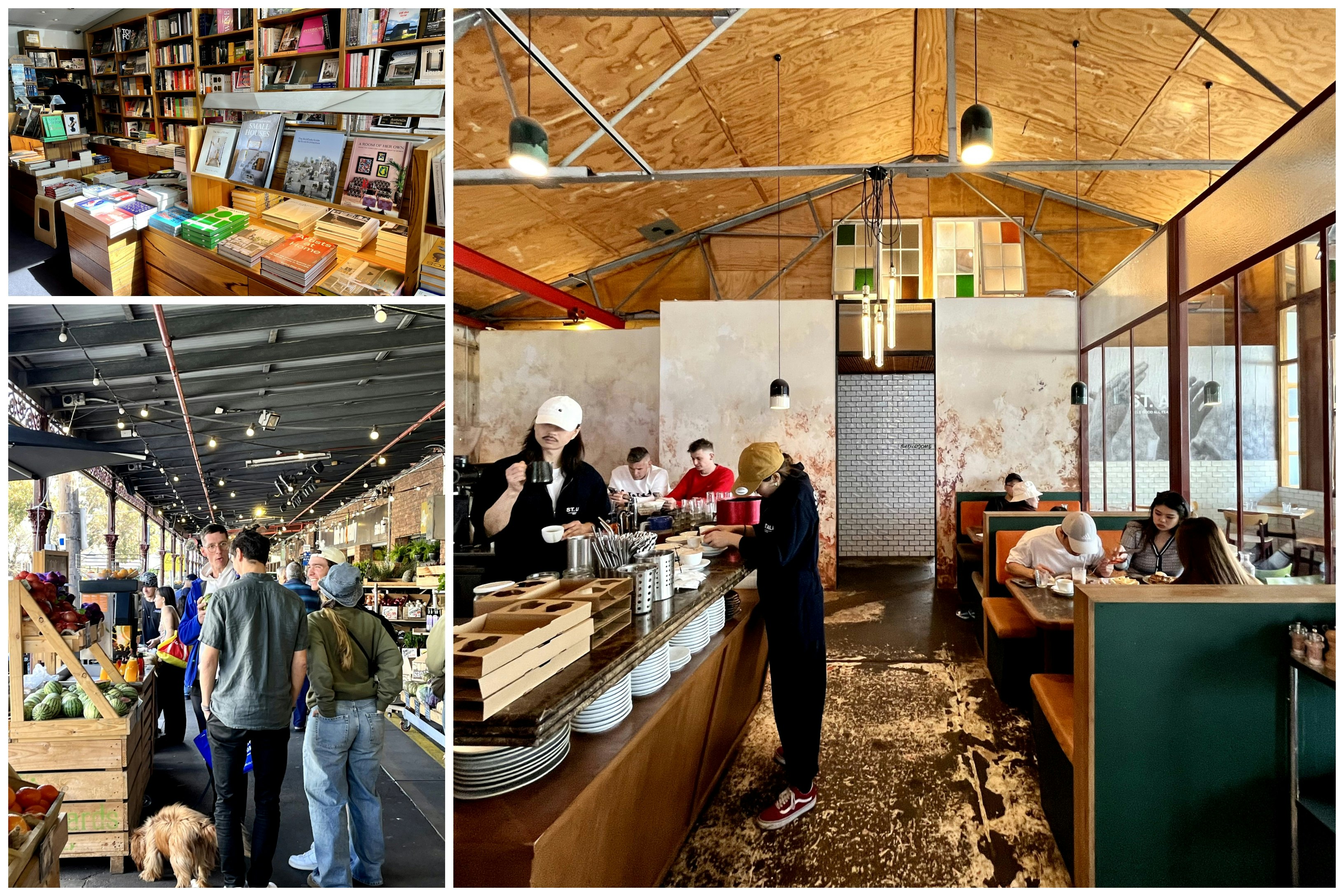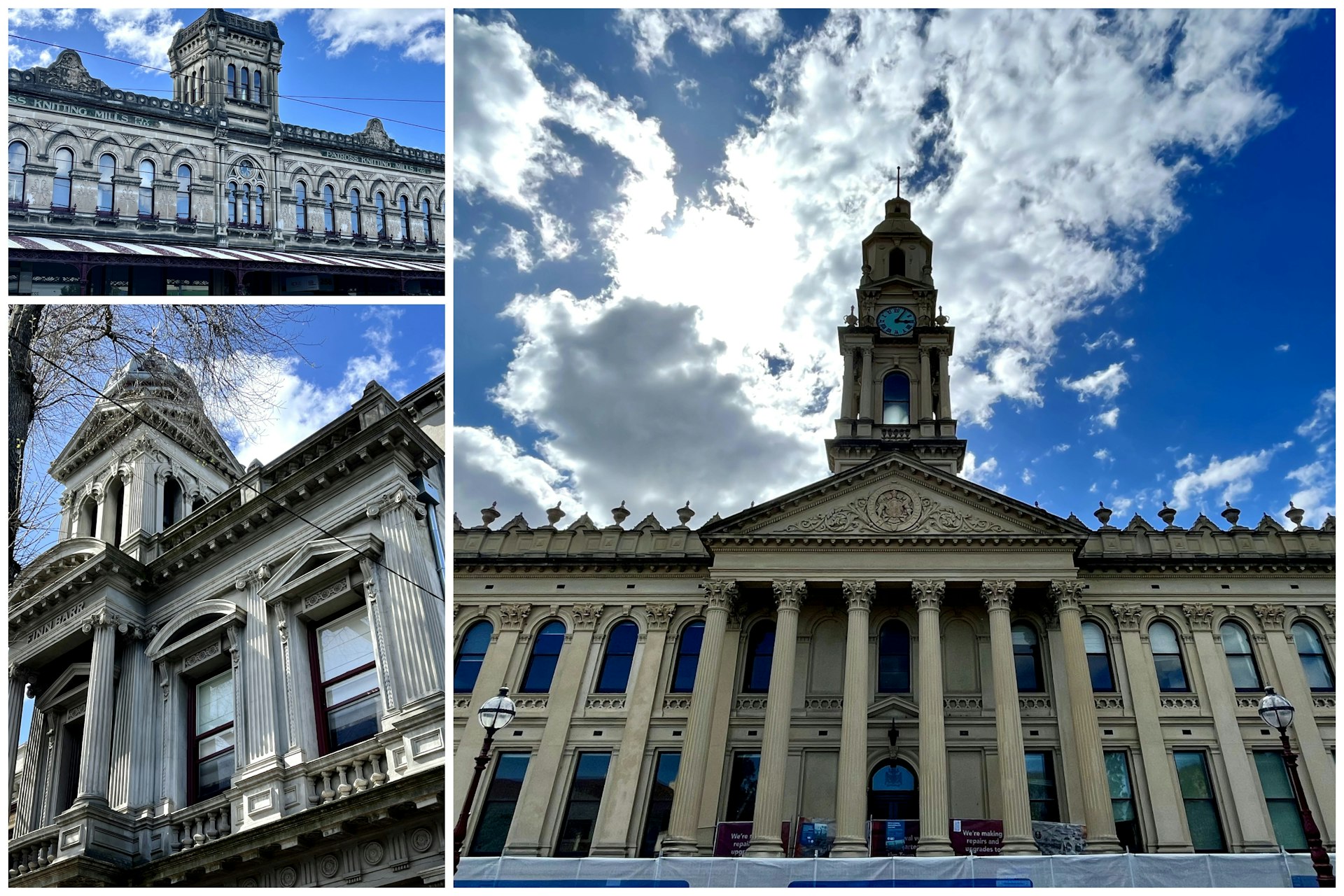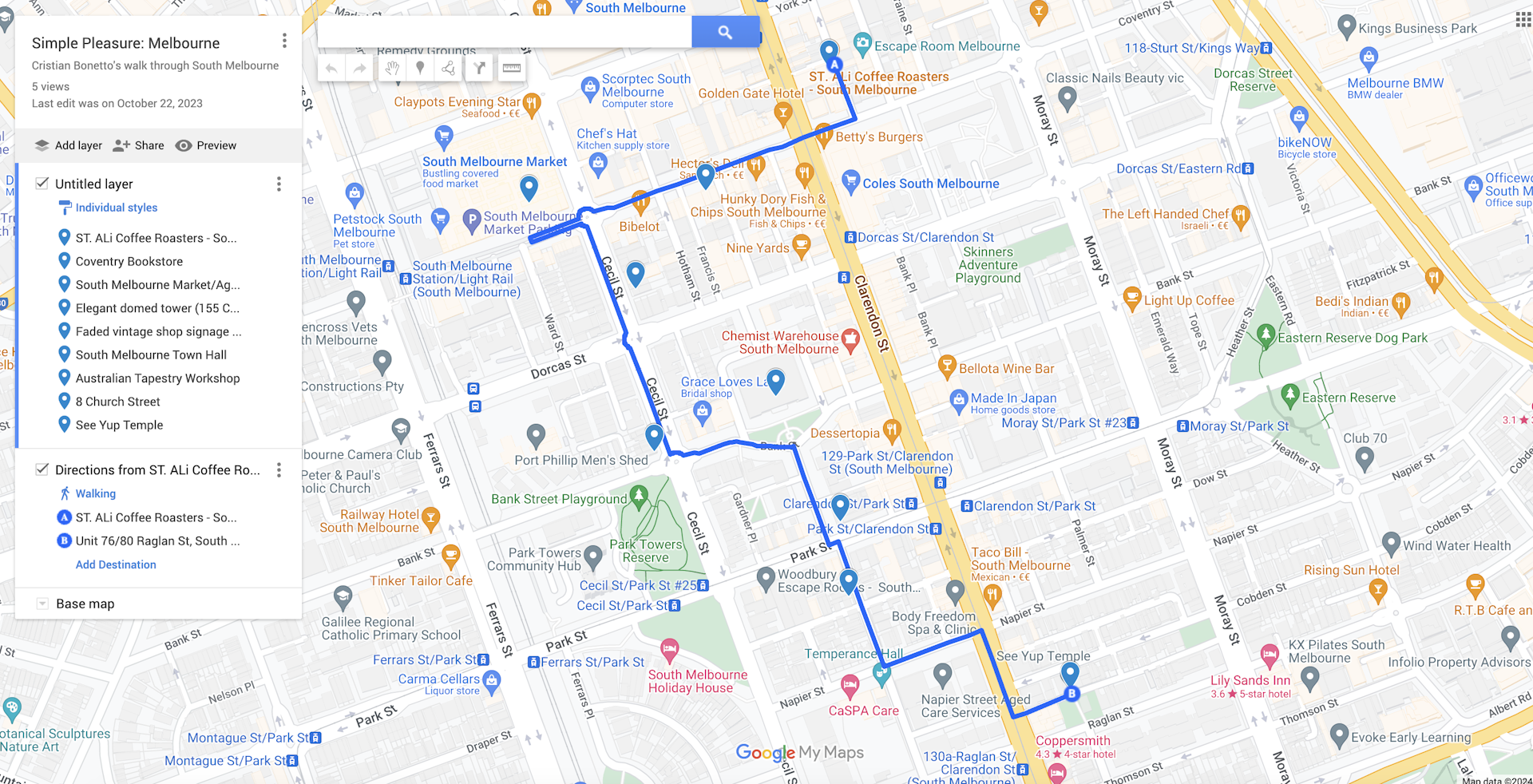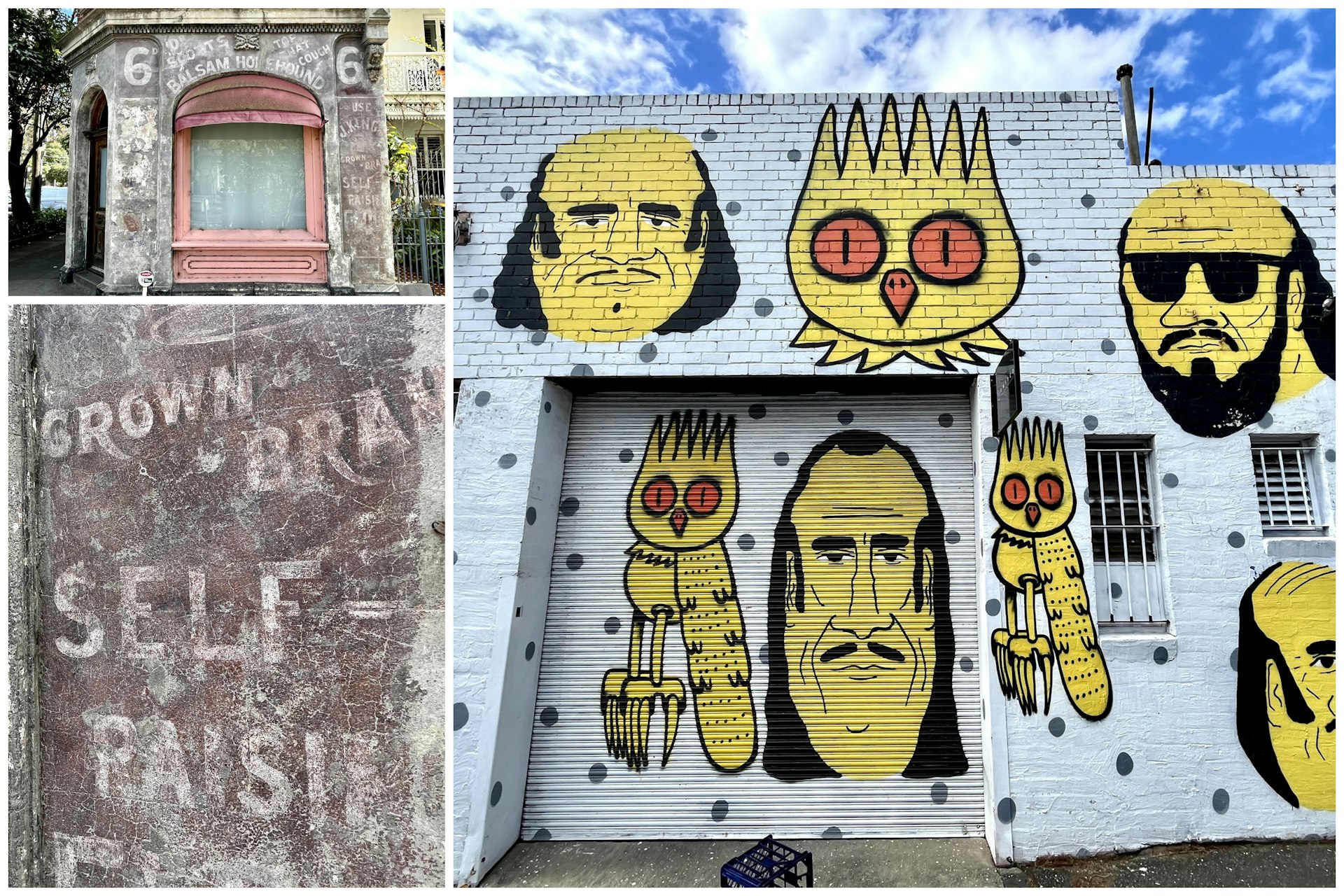Delve into Local Strolls, a series where writers reveal their favorite walks in their hometowns. Each route offers a snapshot of urban life, guiding you to lesser-known attractions and cherished local spots. Here, Cristian Bonetto explains why an aimless stroll through South Melbourne reveals some overlooked delights.
Melbourne loves a game of hide and seek. Unassuming side streets and laneways (alleyways) can lead you anywhere – boisterous market stalls, time-warped streetscapes, even smoky temples. This is a city that rewards the curious. It also indulges the laziest of amblers – Melbourne’s topography is relatively flat.
Each inner Melbourne neighborhood has its own distinct vibe. I’ll often pick one at a whim and wander its streets aimlessly. I know I’ll always discover something wonderful. One of my favorite walks traverses South Melbourne. It’s one of the city’s oldest suburbs and a place where the traditional lands of the Wurundjeri people meet those of the Bunurong people to the south.
I usually kick off with a macchiato at St Ali Coffee Roasters, hidden down an alleyway pimped with playful street art. Like me, café founder Salvatore Malatesta is Italian-Australian, and I love the café’s playful retro-Italo touches.

Caffeinated, I swing right into Coventry Street and follow it to the South Melbourne Market. Cafes, wine bars, boutiques and old, wrought-iron verandas punctuate the street, giving it a quaint, village air. Staff hand write book recommendations on little cards at Coventry Bookstore, where I’ll normally lose track of time.
Prompting me to keep moving is a canalé from market pâtisserie Agathé, where pastry chefs knead like rockstars behind glass. Sticky fingers licked, I’ll roam the rest of the market. Melburnians have been restocking their larders at the South Melbourne Market since 1867 and its undercover aisles peddle everything from freshly shucked oysters to rare cheeses and interesting local wines.

Continuing south along residential Cecil Street, I always stop to admire the elegant domed tower at number 155 and the faded vintage shop signage at the corner of Cecil and Bank Streets. Bank Street itself leads to wedding-cake South Melbourne Town Hall, synonymous with the wealth and vanity of late 19th-century Melbourne. A block to the south is Park Street and the fabulously Venetian-Gothic façade of the old Patross Knitting Mills, now home to the Australian Tapestry Workshop.

From here, I amble south along Church Street, where the cute-as-a-button house at number 8 reminds me of Stuart Little. Turning left into Napier Street, I soon reach Clarendon Street, which I cross and continue south along. The unmarked, cobblestone back alley directly after Cobden Street leads to one of Melbourne’s most surprising heritage sites: See Yup Temple, an intricately carved Chinese temple in operation since 1866. It’s a heady, magical place and an evocative end to a very Melbourne saunter.
